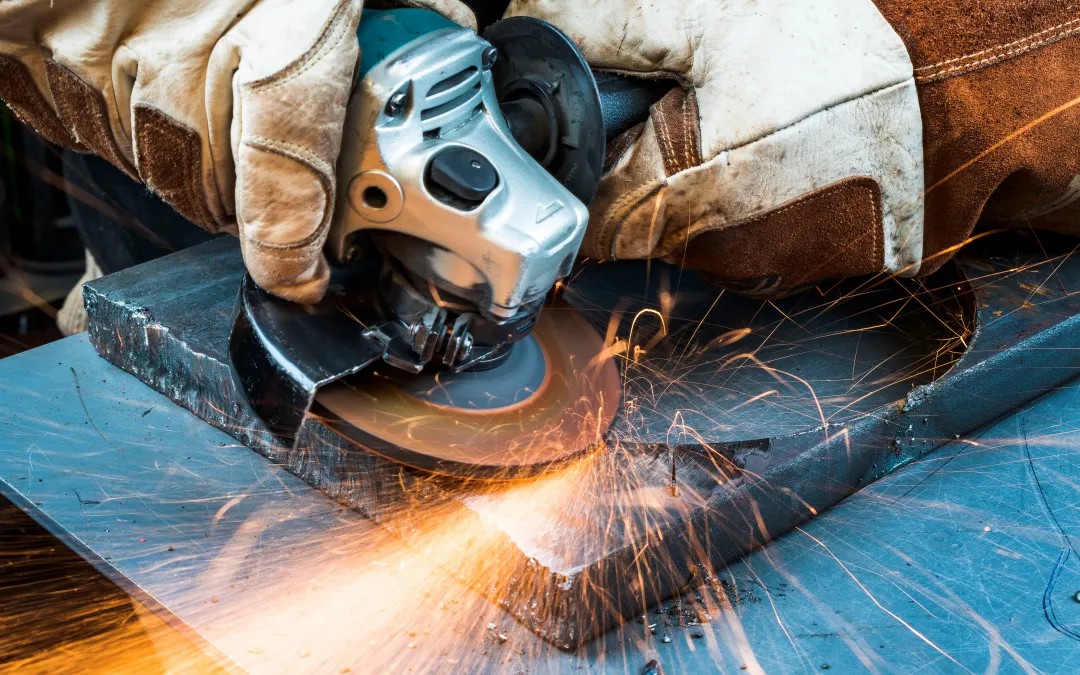Abrasive Wheels: Understanding Safety Risks and the Need for Certified Training in Ireland
Abrasive wheels are essential tools used across various industries, from construction to metalworking. These high-speed cutting and grinding tools offer efficiency and precision but come with significant safety risks. In this article, we will explore what abrasive wheels are, the safety risks associated with their use, and the crucial role that proper training plays in preventing workplace accidents.
What Are Abrasive Wheels?
Abrasive wheels are circular blades that are made from a tough compound of abrasive materials. They are commonly attached to machines like grinders, saws, and polishers. Their primary function is to cut, grind, or shape materials such as metal, stone, and concrete.
Applications of Abrasive Wheels
- Metal fabrication
- Construction and demolition
- Woodworking
- Automotive repair
- Plumbing and welding
Abrasive Wheels Safety Risks
The use of abrasive wheels carries several risks that can lead to serious injuries or fatalities if not managed properly. Some common risks include:
- Wheel Breakage: A worn-out or improperly mounted wheel can shatter during operation, posing a severe injury threat to the user and those nearby.
- Improper Mounting: If an abrasive wheel is not mounted correctly, it can lead to operational failure, which might result in accidents.
- Lack of Protective Equipment: Failing to wear appropriate personal protective equipment (PPE) like goggles and gloves increases the risk of injuries.
- Noise Exposure: Prolonged exposure to the noise from abrasive wheel operations can lead to hearing loss.
- Dust Production: Grinding can produce harmful dust which, if inhaled, can cause respiratory issues.
Why Proper Training is Essential
Proper training in the use of abrasive wheels is crucial for several reasons:
- Knowledge of Equipment: Training ensures that workers understand how to use abrasive wheels safely and effectively.
- Understanding Risks: Workers trained in recognizing the risks associated with abrasive wheels can take proactive measures to mitigate them.
- Compliance with Legal Requirements: In Ireland, workplace safety regulations mandate that employers provide adequate training for employees using potentially hazardous tools.
- Promotion of Safety Culture: A workforce that is educated in safety practices fosters a culture of safety, leading to a reduced rate of workplace accidents.
Abrasive Wheels Certification in Ireland
In compliance with Irish workplace safety standards, workers handling abrasive wheels must undergo certified training. Certification courses are available across various cities, including:
- Abrasive Wheels Training Dublin
- Abrasive Wheels Certification Cork
- Abrasive Wheels Course Galway
- Abrasive Wheels Safety Course Limerick
- Abrasive Wheels Certification Waterford
Programs often feature both theoretical and practical components, covering safe operation techniques, the correct use of PPE, and emergency response procedures.
Safety Guidelines for Using Abrasive Wheels
To minimize the risks associated with abrasive wheels, consider implementing the following safety guidelines:
- Wear PPE: Always use appropriate protective equipment such as safety goggles, gloves, and hearing protection.
- Inspect Equipment: Regularly check abrasive wheels for damage and ensure they are mounted correctly before use.
- Follow Manufacturer Instructions: Always adhere to the manufacturer's guidelines for installation and use.
- Maintain Work Area: Keep the work area free of clutter and hazardous materials.
- Ensure Proper Training: Ensure that all users have completed a certified abrasive wheels training course.
Legal Requirements in Ireland
Under Irish health and safety regulations, employers are required to protect their employees from risks associated with work equipment. This includes providing:
- Assessment of workplace risks associated with abrasive wheels.
- Provision of appropriate training and certification for employees.
- Access to proper PPE for all workers handling abrasive tools.
Best Practices for Preventing Accidents
To ensure the safety of employees, here are some best practices for using abrasive wheels:
- Implement a regular training schedule to keep employees updated on safety protocols.
- Encourage workers to report any equipment faults or safety concerns.
- Conduct routine safety audits to ensure compliance with safety standards.
Conclusion
Abrasive wheels are powerful tools that can enhance productivity in various sectors. However, without proper training and adherence to safety guidelines, the risks can be significant. Ensure your workforce is equipped with the knowledge and skills needed to operate abrasive wheels safely.
Enroll in certified abrasive wheels training courses available in Dublin, Cork, Galway, and Limerick to maintain compliance and ensure a safer working environment. For more information, contact us at [email protected].



 349,500 Offered Certificates
349,500 Offered Certificates
 24/7 Online Training
24/7 Online Training
 Money Back Guarantee
Money Back Guarantee
 Fully Accredited Courses
Fully Accredited Courses
